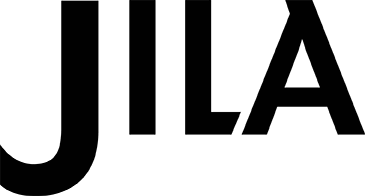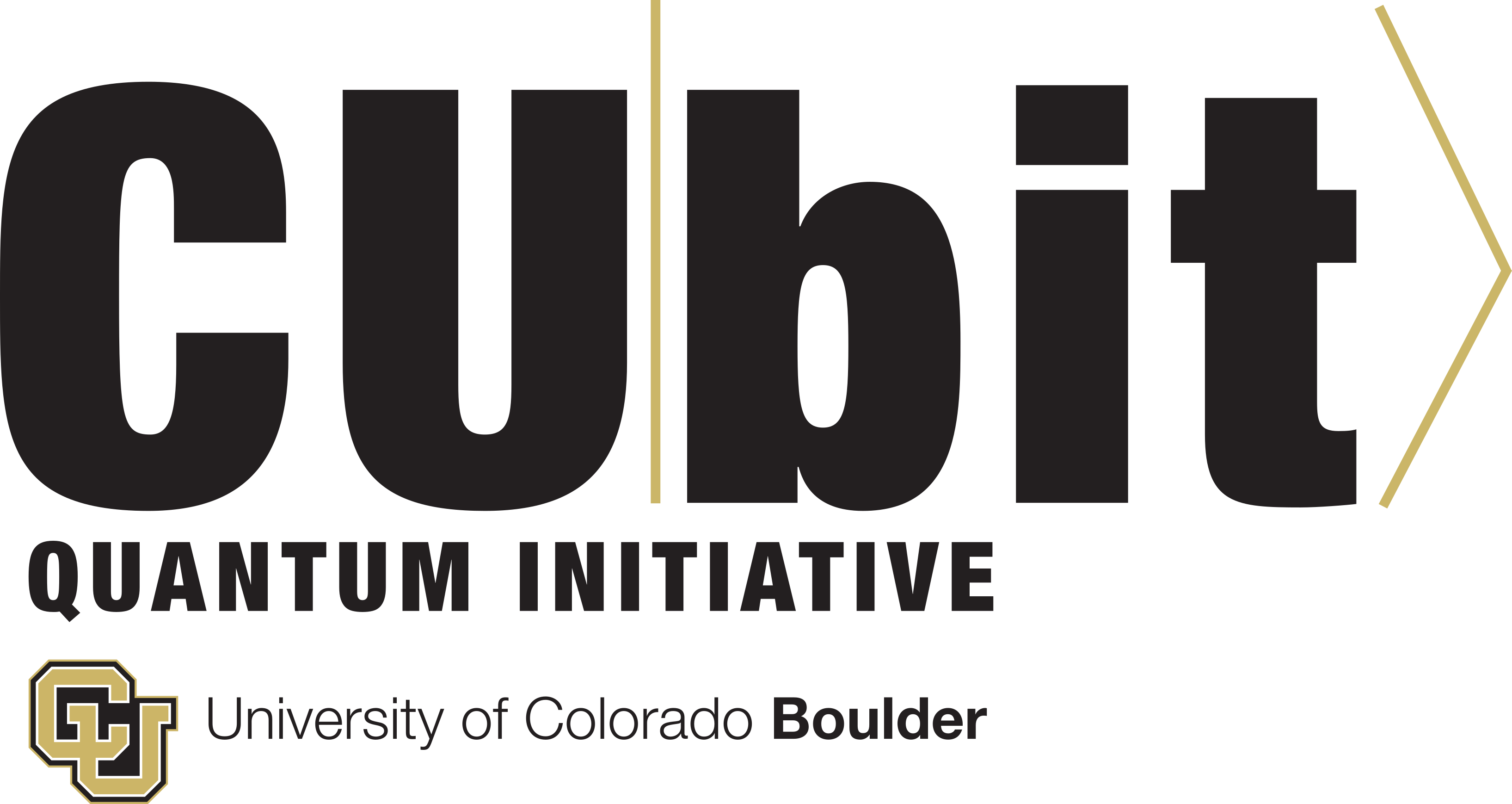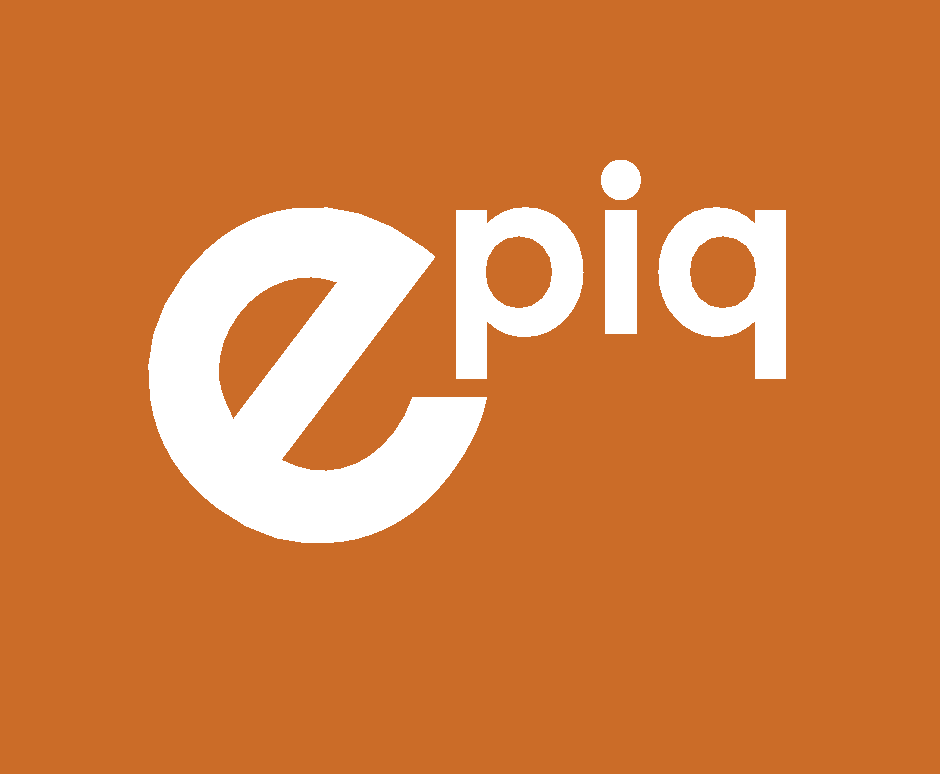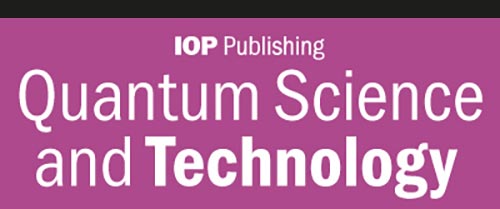Schedule
All conference talks take place in the Glenn Miller Ballroom, located on the second floor of the University Memorial Center. The invited talks and plenary talks use the combined Ballroom, which will be divided into the Center Ballroom and West Ballroom for the parallel sessions.
Invited talks
- Monday, Jan 14: Urmila Mahadev (University of California Berkeley)
- Tuesday, Jan 15: Jun Ye (JILA, University of Colorado Boulder)
- Wednesday, Jan 16: Daniel Harlow (Massachusetts Institute of Technology)
Tutorial talks
The tutorial talks are taking place on January 12 & 13 from 9am to 5.15pm in the lecture room G1B30 in the CU Boulder Physics department.
- Saturday, Jan 12 (morning): Patrick Hayden (Stanford University), Quantum information and the structure of spacetime
- Saturday, Jan 12 (afternoon): Ana Maria Rey (JILA, University of Colorado Boulder), Entanglement in AMO physics
slides (part 1) - slides (part 2) - Sunday, Jan 13 (morning): Thomas Vidick (California Institute of Technology), Verification of quantum computation
slides - Sunday, Jan 13 (afternoon): Milan Mosonyi (Budapest University of Technology and Economics), Entropies
slides
Poster sessions
- Monday session (#1 through 294, minus 108, 169, 173, 289, plus 397, 446; total count: 158)
- Tuesday session (#296 through 480, plus 108, 169, 173, 289, minus 397, 446; total count: 152)
- Complete list of accepted posters for QIP 2019
The poster sessions will take place on Monday, January 14, 18.00 - 19.30, and Tuesday, January 15, 15.30 - 17.00, at the Byron R. White Club at Folsom Field. Folsom Field is the home stadium of the Colorado Buffaloes, and located on CU campus. The Club is a short 10min walk from the conference venue.
The available space on the poster boards for each poster is 4ft x 4ft (122cm x 122cm). Each presenter will be assigned a spot during the corresponding poster session using the submission number.
Printing posters in Boulder (walking distance to CU campus):
- Ink Spot at the University Memorial Center (CU campus)
- FedEx Office Print & Ship Center
- Allegra Marketing Print Mail
- Staples Print & Marketing Services
Mentoring sessions
QIP will once again feature mentoring sessions, in which junior QIP participants have the opportunity to talk to senior colleagues about career advice and high-level research directions.
Mentoring sessions will take place Mon-Fri during lunch break, 1-1.45pm in the Aspen room (UMC, next to the Glenn Miller Ballroom). Sessions are limited to 7 participants each. The following mentors have agreed to host the sessions:
- Monday:
- Ashwin Nayak (University of Waterloo)
- Andrew Childs (University of Maryland)
- Tuesday:
- Aram Harrow (MIT)
- Michael Bremner (University of Technology Sydney)
- Wednesday:
- Elizabeth Crosson (University of New Mexico)
- Joseph Renes (ETH Zürich)
- Thursday:
- Dorit Aharonov (Hebrew University of Jerusalem)
- John Smolin (IBM Research)
- Friday:
- David Gosset (University of Waterloo)
- Toby Cubitt (University College London)
Industry session
The industry session will take place in the Glenn Miller Ballroom on Tuesday, January 15, from 7 to 9pm. The session will feature short presentations given by representatives from our sponsors. You will also have the chance to talk to them directly at their exposition tables in the West Glenn Miller Ballroom.
The following speakers have been confirmed:
- Mario Szegedy (Alibaba): Career opportunities at Alibaba Quantum Lab
- Li-Jing Jin (Baidu): Introduction to Baidu Quantum Program
- Pooya Ronagh (1QBit): Quantum Computing Research at 1QBit
- Zhang Jiang (Google): Quantum algorithms for today's quantum processors
- Christa Zoufal (IBM): Insights into IBM's Quantum Application Research
- Guang Hao Low (Microsoft): Quantum chemistry with Q#
- Matt Harrigan (Rigetti)
Accepted talks
Plenary talks are 60min, and contributed talks are 30min plus 5min for questions. The following list is in random order, except for the plenary talks.
- Andrea Coladangelo and Jalex Stark: Unconditional separation of finite and infinite-dimensional quantum correlations (best student paper and plenary)
- Jeongwan Haah, Matthew Hastings, Robin Kothari and Guang Hao Low: Quantum algorithm for simulating real time evolution of lattice Hamiltonians (plenary)
- Aram Harrow and Saeed Mehraban: Approximate unitary t-designs by short random quantum circuits using nearest-neighbor and long-range gates (plenary)
- Ran Raz and Avishay Tal: Oracle Separation of BQP and PH (plenary)
- Omar Fawzi, Antoine Grospellier and Anthony Leverrier: Constant overhead quantum fault-tolerance with quantum expander codes (plenary)
- Zvika Brakerski, Paul Christiano, Urmila Mahadev, Umesh Vazirani and Thomas Vidick: A Cryptographic Test of Quantumness and Certifiable Randomness from a Single Quantum Device
- Carlo Sparaciari, Lídia Del Rio, Carlo Maria Scandolo, Philippe Faist and Jonathan Oppenheim: The first law of general quantum resource theories
- Scott Aaronson, Xinyi Chen, Elad Hazan, Satyen Kale and Ashwin Nayak: Online Learning of Quantum States
- Steve Flammia and Joel Wallman: Efficient learning of Pauli channels
- Victor V. Albert, R. T. Brierley, Michel H. Devoret, Kasper Duivenvoorden, S. M. Girvin, Alexander Grimm, Liang Jiang, Linshu Li, Shantanu O. Mundhada, Kyungjoo Noh, Philip Reinhold, Chao Shen, Barbara M. Terhal, Steven Touzard, Christophe Vuillot and Dylan J. Young: Characterizing and developing bosonic error-correcting codes
- Joseph Fitzsimons, Zhengfeng Ji, Thomas Vidick and Henry Yuen: Quantum proof systems for iterated exponential time, and beyond
- Marius Lemm and Evgeny Mozgunov: No chiral modes in frustration-free systems
- Andreas Bluhm and Ion Nechita: Compatibility of quantum measurements and inclusion constants for free spectrahedra
- Earl Campbell: A theory of single-shot error correction for adversarial noise
- Xin Wang and Mark Wilde: Entanglement cost of quantum state preparation and channel simulation
- Ryan Babbush, Craig Gidney, Dominic Berry, Nathan Wiebe, Jarrod McClean, Alexandru Paler, Austin Fowler and Hartmut Neven: Simulating correlated electrons in the surface code with a single T-factory
- Francois Le Gall and Frederic Magniez: Sublinear-Time Quantum Computation of the Diameter in CONGEST Networks
- Urmila Mahadev: Classical Homomorphic Encryption for Quantum Circuits
- Miguel Navascues: Resetting uncontrolled quantum systems
- Adam Bouland, Bill Fefferman, Chinmay Nirkhe and Umesh V. Vazirani: Quantum Supremacy and the Complexity of Random Circuit Sampling
- Alvaro Alhambra, Chris Perry and Matteo Lostaglio: Heat Bath Algorithmic Cooling with Thermal Operations
- Joran van Apeldoorn, Shouvanik Chakrabarti, Andrew Childs, Andras Gilyen, Sander Gribling, Tongyang Li, Ronald de Wolf and Xiaodi Wu: Algorithms and lower bounds for convex optimization using quantum oracles
- Alessandro Chiesa, Michael A. Forbes, Tom Gur and Nicholas Spooner: Spatial Isolation Implies Zero Knowledge Even in a Quantum World
- Li Gao, Marius Junge and Nicholas Laracuente: Complete Logarithmic Sobolev Inequality and Irreducible Graphs
merged with
Ivan Bardet, Marius Junge, Nicholas LaRacuente, Cambyse Rouzé and Daniel Stilck França: Functional inequalities via group transference techniques and application to estimation of decoherence times and capacities - Milad Marvian, Daniel Lidar and Itay Hen: On the computational complexity of curing non-stoquastic Hamiltonians
merged with
Joel Klassen and Barbara Terhal: Two-local qubit Hamiltonians: when are they stoquastic? - Pranab Sen: Simultaneous decoding, unions, intersections and a one-shot quantum joint typicality lemma
- Daniel Litinski: A Game of Surface Codes: Large-Scale Quantum Computing with Lattice Surgery
- Tomáš Gonda, Ravi Kunjwal, David Schmid, Elie Wolfe and Ana Belén Sainz: Almost Quantum Correlations are Inconsistent with Specker’s Principle
- Johannes Bausch, Toby Cubitt, Angelo Lucia and David Perez-Garcia: Undecidability of the Spectral Gap in One Dimension
- Isaac Kim and Brian Swingle: Noise-resilient quantum circuits
- Srinivasan Arunachalam, Jop Briet, Sander Gribling, Monique Laurent and Carlos Palazuelos: A Converse to the Polynomial Method
- Aleksander Marcin Kubicki, Carlos Palazuelos and David Perez-Garcia: A quantitative no-programming theorem
- Emmanuel Jeandel, Simon Perdrix and Renaud Vilmart: Completeness of the ZX-Calculus
- Adam Bene Watts, Robin Kothari, Luke Schaeffer and Avishay Tal: Exponential separation between shallow quantum circuits and unbounded fan-in shallow classical circuits
- Atul Singh Arora, Jérémie Roland and Stephan Weis: Weak Coin Flipping
- Thomas Bohdanowicz, Elizabeth Crosson, Chinmay Nirkhe and Henry Yuen: Good approximate quantum LDPC codes from spacetime circuit Hamiltonians
- Joran van Apeldoorn, Fernando Brandão, Andras Pal Gilyen, Amir Kalev, Tongyang Li, Cedric Yen-Yu Lin, Krysta M. Svore and Xiaodi Wu: Quantum SDP Solvers: New Input Models, Improved Algorithms, and Applications
- Matthias Christandl, Felix Leditzky, Christian Majenz, Graeme Smith, Florian Speelman and Michael Walter: Asymptotic performance of port-based teleportation
- Gabor Ivanyos, Anupam Prakash and Miklos Santha: Efficient quantum algorithms for some instances of the hidden multiple shift problem
- André Chailloux: A note on the quantum query complexity of permutation symmetric functions
- Iman Marvian: Coherence distillation machines are impossible in quantum thermodynamics
- Sergey Bravyi, Dan Browne, Padraic Calpin, Earl Campbell, David Gosset and Mark Howard: Simulation of quantum circuits by low-rank stabilizer decompositions
- Ingo Roth, Richard Kueng, Shelby Kimmel, Yi-Kai Liu, David Gross, Jens Eisert and Martin Kliesch: Recovering quantum gates from few average gate fidelities
- Matthew Coudron, Jalex Stark and Thomas Vidick: Trading locality for time: certifiable randomness from low-depth circuits
- Justin Holmgren and Lisa Yang: Characterizing Parallel Repetition of Non-Signaling Games: Counterexamples and a Dichotomy Theorem
- Yigit Subasi, Rolando Somma and Davide Orsucci: Quantum algorithms for systems of linear equations inspired by adiabatic quantum computing
- Hector Bombin: Colorful Quantum Computation
- Richard Cleve, Benoit Collins, Li Liu and Vern Paulsen: Constant gap between conventional strategies and those based on C*-dynamics for self-embezzlement
- Simon Becker and Nilanjana Datta: Convergence rates for quantum evolution & entropic continuity bounds in infinite dimensions
- Andras Pal Gilyen, Yuan Su, Guang Hao Low and Nathan Wiebe: Quantum singular value transformation and beyond: exponential improvements for quantum matrix arithmetics
- Andris Ambainis, Kaspars Balodis, Jānis Iraids, Martins Kokainis, Krišjānis Prūsis and Jevgēnijs Vihrovs: Quantum Speedups for Exponential-Time Dynamic Programming Algorithms
- Dorit Aharonov and Leo Zhou: Hamiltonian Sparsification and Gap-Simulations
- Philippe Faist, Mario Berta and Fernando Brandão: Thermodynamic capacity of quantum processes
- Mischa Woods, Ralph Silva, Gilles Pütz, Sandra Stupar and Renato Renner: Quantum clocks are more accurate than classical ones
- Matthew Coudron and Aram Harrow: Universality of EPR pairs in Entanglement-Assisted Communication Complexity, and the Communication Cost of State Conversion
- Dominic Berry, Maria Kieferova, Artur Scherer, Yuval Sanders, Guang Low, Nathan Wiebe, Jarrod McClean, Craig Gidney, Hartmut Neven and Ryan Babbush: Quantum simulation of chemistry with sublinear scaling in basis size
merged with
Guang Hao Low and Nathan Wiebe: Hamiltonian simulation in the interaction picture - Sergey Bravyi, David Gosset, Robert Koenig and Kristan Temme: Approximation algorithms for quantum many-body problems
- Scott Aaronson, Daniel Grier and Luke Schaeffer: A Quantum Query Complexity Trichotomy for Regular Languages
- Anthony Leverrier, Vivien Londe and Gilles Zémor: A construction of quantum (almost) locally testable codes
- Aram Harrow and John Napp: Low-depth gradient measurements can improve convergence in variational hybrid quantum-classical algorithms
Committees
Below you can find lists of the local organizing committee, the program committee, and the current steering committee of the QIP conference series.
Local organizing committee
- Leditzky, Felix (JILA, University of Colorado Boulder; Chair)
- Smith, Graeme (JILA & University of Colorado Boulder)
Program committee
- Acín, Antonio (ICFO)
- Bausch, Johannes (University of Cambridge)
- Briët, Jop (CWI)
- Childs, Andrew (University of Maryland)
- Chiribella, Giulio (University of Hong Kong and University of Oxford)
- Christandl, Matthias (University of Copenhagen; Chair)
- Cleve, Richard (University of Waterloo)
- Crosson, Elizabeth (University of New Mexico)
- del Rio, Lídia (ETH Zurich)
- Dupuis, Frédéric (CNRS, LORIA, Université de Lorraine)
- Fawzi, Omar (ENS Lyon)
- Flammia, Steve (University of Sydney)
- Garcia-Patron, Raul (Universite Libre de Bruxelles)
- Gosset, David (University of Waterloo)
- Haah, Jeongwan (Microsoft Research)
- Hastings, Matt (Microsoft Research)
- Jeffery, Stacey (QuSoft, CWI)
- Kashefi, Elham (University of Edinburgh and CNRS, Sorbonne universite)
- Kerenidis, Iordanis (CNRS, Université Paris Diderot)
- König, Robert (Technical University of Munich)
- Kothari, Robin (Microsoft Research)
- Lancien, Cecilia (Université Paul Sabatier Toulouse)
- Le Gall, Francois (Kyoto University)
- Lee, Troy (University of Technology Sydney)
- Li, Ke (Harbin Institute of Technology)
- Liu, Yi-Kai (NIST/University of Maryland)
- Pastawski, Fernando (Psi Quantum)
- Pérez-García, David (Universidad Complutense de Madrid)
- Reichardt, Ben (USC)
- Renes, Joseph (ETH Zurich)
- Schuch, Norbert (Max-Planck-Institute of Quantum Optics, Munich)
- Svore, Krysta (Microsoft Research)
- van Dam, Wim (University of California, Santa Barbara)
- Winter, Andreas (Universitat Autònoma de Barcelona)
- Yung, Man-hong (Southern University of Science and Technology)
Steering committee
- Ambainis, Andris (University of Latvia)
- Cubitt, Toby (UCL)
- Datta, Nilanjana (University of Cambridge)
- Leung, Debbie (IQC, University of Waterloo)
- Montanaro, Ashley (University of Bristol)
- Renner, Renato (ETH Zürich)
- Smith, Graeme (JILA & University of Colorado Boulder; Chair)
- Terhal, Barbara (TU Delft)
- Zeng, Bei (University of Guelph)
















